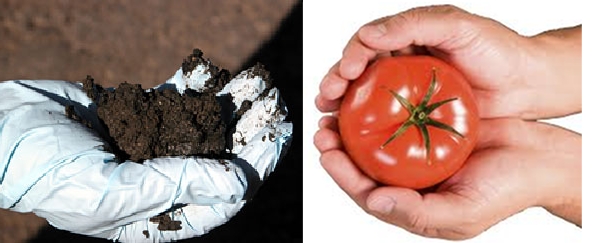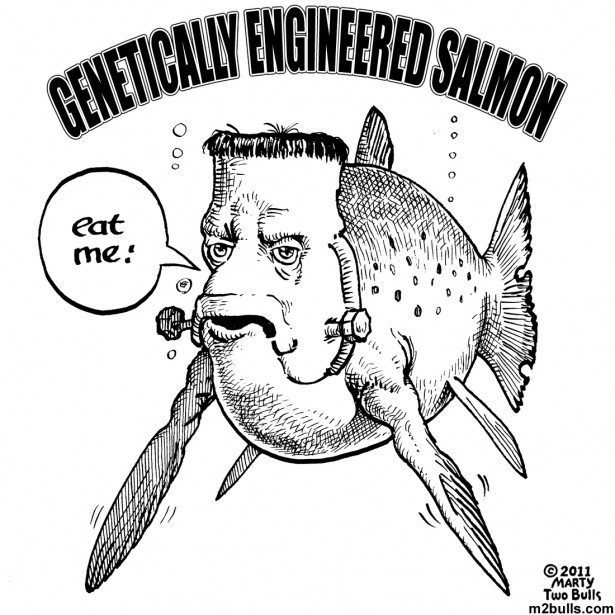Environment
Victory for Food Rights and Wisconsin Farmer Vernon Hershberger
 In what has been roundly declared a victory for food rights and private food transactions by supporters, a jury returned a verdict of not guilty on three of four charges against Wisconsin raw milk farmer Vernon Hershberger in the early morning hours of May 25.
In what has been roundly declared a victory for food rights and private food transactions by supporters, a jury returned a verdict of not guilty on three of four charges against Wisconsin raw milk farmer Vernon Hershberger in the early morning hours of May 25.
Raw Milk Supporters Rally in Baraboo, Wisconsin for Farmer Vernon Hershberger's Criminal Trial
Farmer Vernon Hershberger's trial started May 20 in Baraboo, Wisconsin, and will most likely continue until May 24 at the earliest.
GMO Labeling Passes Vermont House as Activists Prepare to March Against Monsanto
 In an advance that makes history, Vermont's House of Representatives passed a bill on May 10 requiring foods containing genetically modified organisms (GMOs) to be labeled. This is the furthest any such legislation has made it through the legislative process in the United States.
In an advance that makes history, Vermont's House of Representatives passed a bill on May 10 requiring foods containing genetically modified organisms (GMOs) to be labeled. This is the furthest any such legislation has made it through the legislative process in the United States.
Republican Governor Deals Blow to "Constitutionally Suspect" Tennessee "Ag Gag" Bill
Republican Tennessee Governor Bill Haslam has vetoed a controversial "ag gag" bill that would hamstring citizen investigations documenting patterns of abuse of animals and regulatory violations.
Trade Group Offers Free Sewage Sludge "Compost" to Community Gardens in "Million Tomato Campaign" for Food Banks

Beautiful spring weather has gardeners outside seeding lettuce and transplanting tomatoes. Community gardens are ramping up for a growing season full of hot peppers and trailing squash vines. The sewage sludge "composting" industry wants in on the action. May 6 to May 12 has been declared "International Compost Awareness Week" by the sewage sludge industry trade group the U.S. Composting Council (USCC).
Madison Joins "Fossil Free" Divestment Effort
 Mayor Paul Soglin threw his support behind 350.org's "Fossil Free" campaign, pledging to keep Madison free of fossil fuel investments and working to convince other units of local government to do th
Mayor Paul Soglin threw his support behind 350.org's "Fossil Free" campaign, pledging to keep Madison free of fossil fuel investments and working to convince other units of local government to do th
Over a Million Comments Filed on GE Salmon as New Evidence Emerges of Deeply Flawed Review
 The extended comment period on the U.S. Food and Drug Administration (FDA) review and approval of AquAdvantage genetically engineered (GE) salmon ends April 26. As more comments flood in, the Center for Food Safety (CFS) reports that documents disclosed through a Freedom of Information Request (FOIA) "raise serious questions about the adequacy of the FDA's review of the AquAdvantage Salmon application."
The extended comment period on the U.S. Food and Drug Administration (FDA) review and approval of AquAdvantage genetically engineered (GE) salmon ends April 26. As more comments flood in, the Center for Food Safety (CFS) reports that documents disclosed through a Freedom of Information Request (FOIA) "raise serious questions about the adequacy of the FDA's review of the AquAdvantage Salmon application."
On Earth Day, ALEC Bemoans “Somber” Environmentalists
The American Legislative Exchange Council (ALEC), which is centrally involved with pushing environmentally destructive legislation on behalf of the fossil fuel industry, today complained that "Earth Day has been a largely somber event" when it should be "a celebration of the wonderful achievements humankind has made in cleaning and greening the planet," wrote Todd Wynn, ALEC Energy, Environment, and Agriculture Task Force Director.
Bayer and Syngenta Lobby Furiously Against EU Efforts to Limit Pesticides and Save Bees
Bee populations have been declining rapidly worldwide in recent years -- in the U.S., they have declined by almost 50 percent just since October 2012, according to The Ecologist. The problem is complex, with possible culprits including certain parasites (like Varroa mites), viruses, pesticides, and industrial agriculture. But two studies published in early 2012 in the journal Science suggested a particularly strong connection between the use of a class of pesticides called neonicotinoids and the decline of both bumble bee and honeybee populations.
